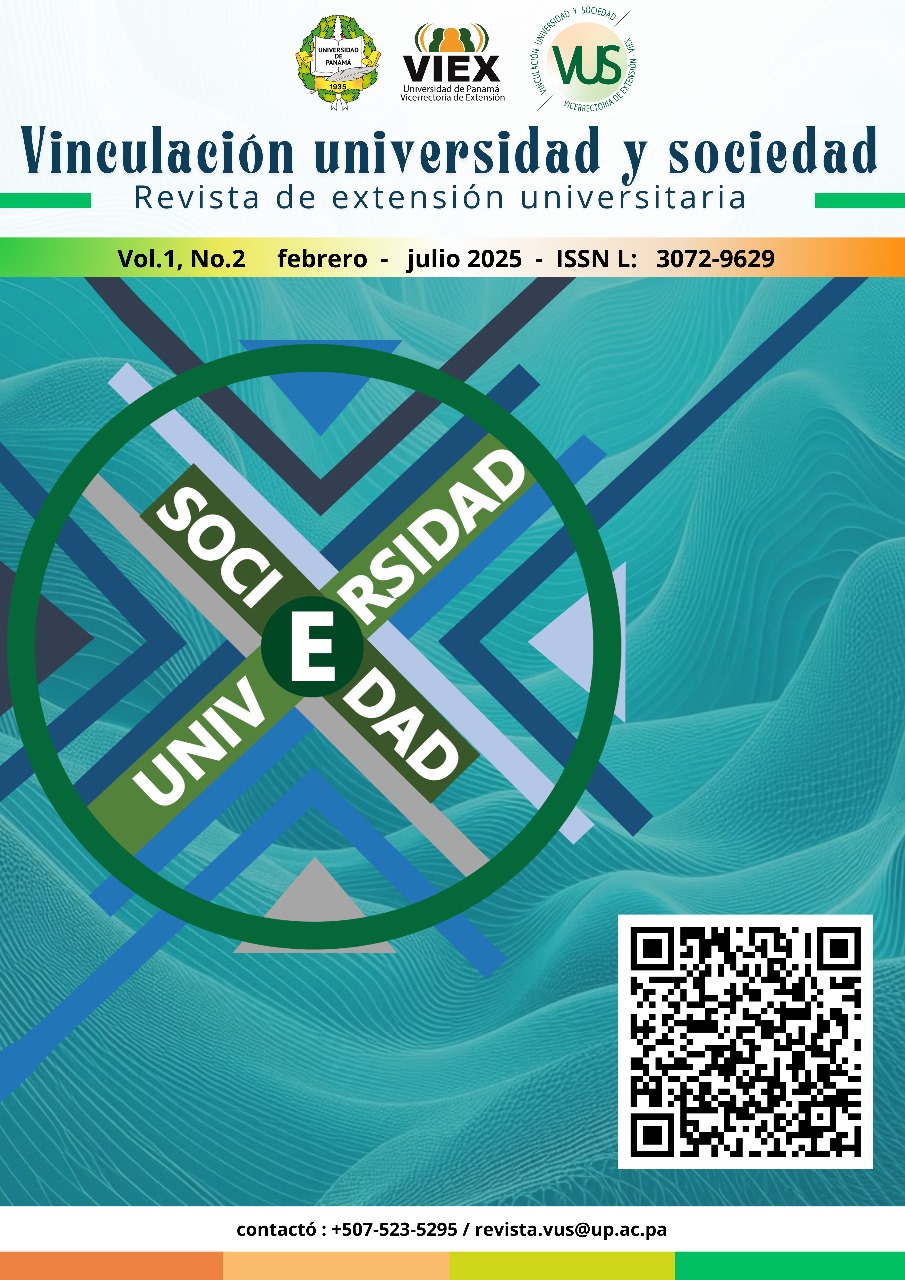

Copyright (c) 2025 Vinculación universidad y sociedad

This work is licensed under a Creative Commons Attribution-NonCommercial-ShareAlike 4.0 International License.
Chronic non-communicable diseases represent the main cause of death and disability worldwide, a reality from which Panama does not escape. Lifestyles, social factors and economic development directly affect these and constitute a global challenge for their prevention, diagnostic control, treatment and follow-up.
The risk factors associated with chronic non-communicable diseases in the staff of the Cafeterias, University of Panama, 2022 were analyzed. An analytical prevalence study was carried out.
The study sample was the entire cafeteria management staff where 106 surveys were applied. The information from the surveys was compared between the healthy and sick groups. A univariate analysis was performed for each variable; then a bivariate analysis using tetrachoric tables. The data were processed through Epi Info version 7.2.
To determine statistical significance, the chi square was used, presenting a confidence level of 95% and a significance value of p 0.05.
The results found statistical significance between age and chronic non-communicable diseases, marital status and sugar consumption being risk factors for the development of chronic non-communicable diseases.
We conclude that age, marital status and sugar consumption have an association with the development of chronic non-communicable diseases and is not due to chance.